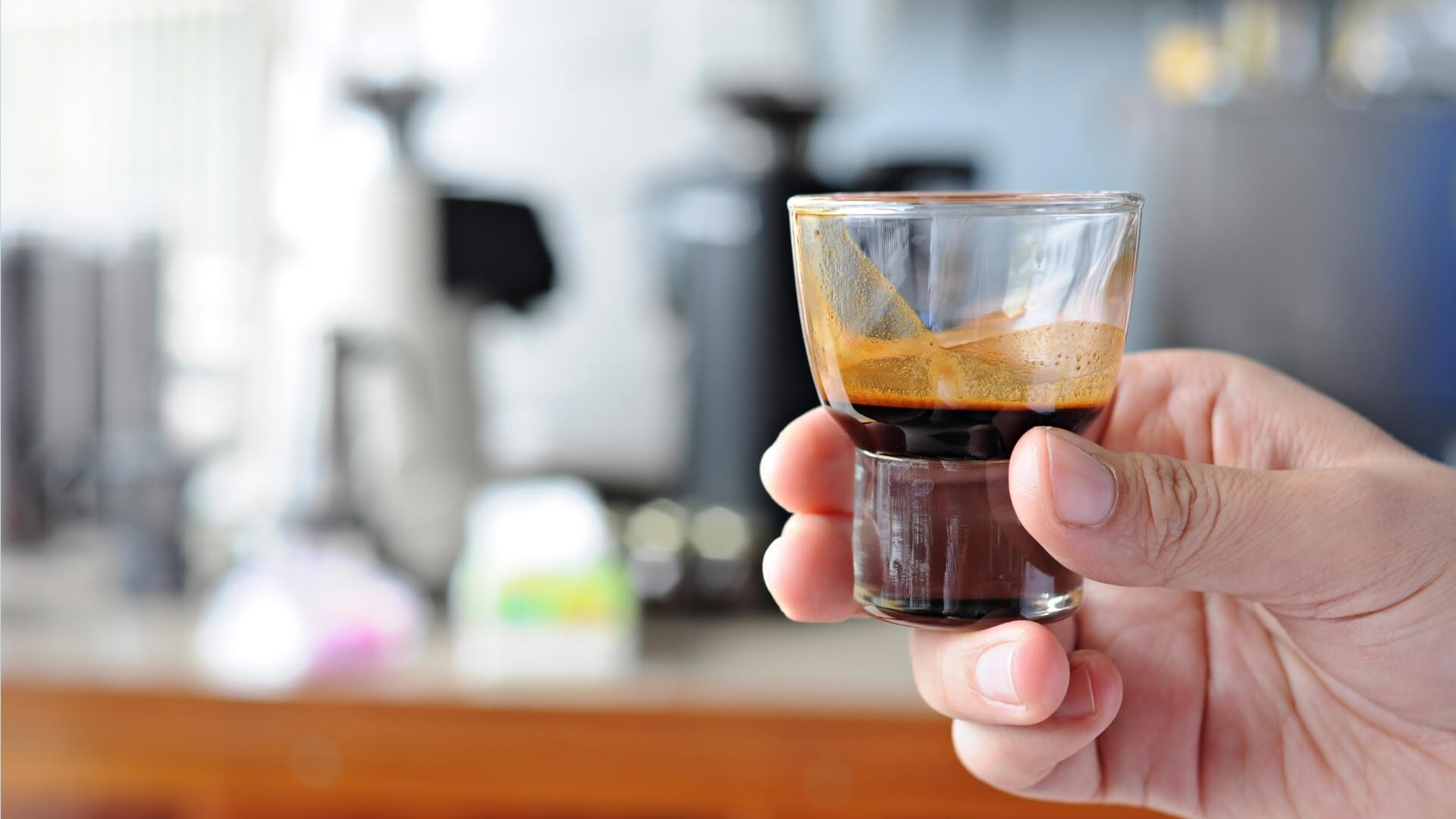You may think that decaf coffee tastes exactly like a regular one, but you’d be wrong. Decaf coffee tastes different and it’s a fact. The reason is the process of decaffeination which changes the taste profile (and the fact that regular coffees are roasted at lower temperatures).
Want to learn more about it? Let’s go!
- What is decaf coffee?
- A Few Ideas To Improve Decaf Coffee Taste
- 9 Reasons To Drink Decaf Coffee
- Is Decaffeinated Coffee Bad For You? (Health Benefits of Decaf Coffee Beans)
- Does decaf coffee give you more energy than regular coffee?
- What is the point of drinking decaffeinated coffee?
- Which Decaf Coffee Should I Try?
- Some Questions You May Have
- Conclusion on Why Does Decaf Coffee Taste Different
What is decaf coffee?
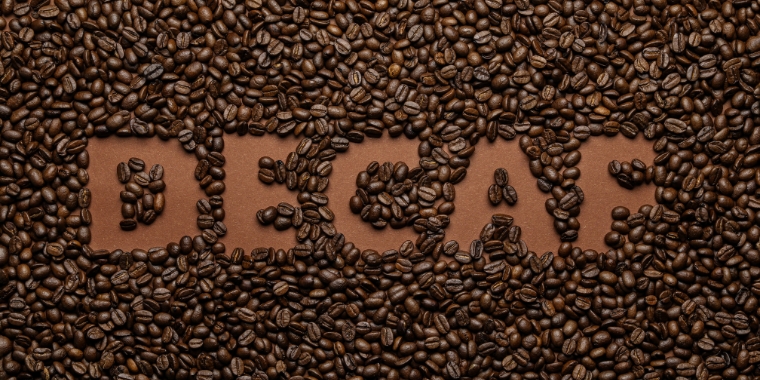
Decaffeinated coffee is a type of coffee made from coffee beans that have undergone a process to remove most of the caffeine content.
The decaffeination process aims to preserve the coffee’s natural flavors and aroma while significantly reducing the amount of caffeine, typically leaving around 1-5% of the original caffeine content.
Why Does Decaf Coffee Taste Different? (How Decaffeination Methods Affect Taste)
If you are wondering what decaf coffee taste like we need to start with different decaffeination methods as all of them have an impact on the taste and quality of the final coffee product.
The Swiss Water Process, being a chemical-free method, is renowned for preserving more of the coffee’s original flavor profile. However, some coffee enthusiasts argue that this method can result in a slightly muted or watered-down flavor.
The Direct and Indirect Solvent Methods, although effective, can leave residual solvent traces that may affect the taste and aroma of the coffee, leading to a somewhat altered flavor profile compared to the original beans.
The Carbon Dioxide Process is praised for effectively removing caffeine while preserving much of the coffee’s original flavor and aroma. However, due to the high costs associated with this method, CO2-decaffeinated coffee is often more expensive and less widely available.
In you are in hurry, here’s a brief summary
The decaffeination process can have a substantial impact on the taste of coffee. Each method has its advantages and disadvantages, with some methods preserving more of the original flavor and aroma than others.
Overview of decaffeination methods
Decaffeination is the process of removing caffeine from coffee beans while preserving as much of the original flavor and aroma as possible.
There are several methods used to decaffeinate coffee beans, each with its unique advantages and disadvantages:
| Decaffeination Method | Description | Advantages | Disadvantages |
| Swiss Water Process | A chemical-free method that uses water and osmosis to remove caffeine from coffee beans. | Preserves the original flavors and aroma of the coffee beans. 99.9% caffeine-free. | Requires more time and effort, making it more expensive. |
| Direct Solvent Method | Uses chemical solvents to remove caffeine directly from green coffee beans | Quick and effective method. | Concerns about potential health risks associated with chemical solvents. |
| Indirect Solvent Method | Similar to the Direct Solvent Method but with an extra step to reduce contact between the coffee beans and the solvent. | Generally considered safer than the Direct Solvent Method. | Still involves using chemical solvents. |
| Carbon Dioxide Process | Uses pressurized carbon dioxide to remove caffeine from coffee beans. | Highly efficient and environmentally friendly. Preserves much of the coffee’s original flavor and aroma. | Expensive and less accessible for smaller coffee producers. |
Swiss Water Process
The Swiss Water Process is a chemical-free decaffeination method that uses water and osmosis to remove caffeine from coffee beans.
The process begins by soaking green coffee beans in hot water, which dissolves the caffeine and other soluble compounds.
This process is repeated until 99.9% of the caffeine has been removed [source]
Direct Solvent Method
The Direct Solvent Method involves the use of chemical solvents, such as methylene chloride or ethyl acetate, to dissolve and remove caffeine directly from green coffee beans.
The beans are first steamed to open up their pores, then soaked in the solvent for several hours. The solvent bonds with the caffeine molecules, and when the solvent is drained away, the caffeine is removed along with it.
The beans are then rinsed and dried to remove any remaining solvent traces.
This method is effective and relatively quick, but concerns about potential health risks associated with chemical solvents have led some consumers to seek alternatives.
Indirect Solvent Method
The Indirect Solvent Method, also known as the water process or the European process, is similar to the Direct Solvent Method but includes an extra step to reduce the contact between the coffee beans and the solvent.
Initially, green coffee beans are soaked in hot water to extract caffeine and other soluble compounds. The beans are then separated, and a solvent is added to the caffeine-rich water to selectively bond with the caffeine.
The solvent and caffeine are then evaporated, leaving behind a flavor-rich, caffeine-free water that is reintroduced to the beans to absorb the flavor compounds once again. This method is generally considered safer than the Direct Solvent Method, but it still involves using chemical solvents.
Carbon Dioxide Process
The Carbon Dioxide Process is a cutting-edge method that uses pressurized carbon dioxide to remove caffeine from coffee beans.
This process involves placing green coffee beans in a high-pressure chamber and exposing them to liquid or supercritical CO2. The CO2 acts as a solvent, selectively dissolving the caffeine.
Once the caffeine is removed, the CO2 is depressurized, turning it back into a gas and leaving the beans caffeine-free.
This method is not only environmentally friendly but also highly efficient. However, its high cost may make it less accessible for smaller coffee producers.
In you are in hurry, here’s a brief summary
Coffee can be decaffeinated using chemical or water-based methods. Chemical methods are effective but can leave solvent traces, while water-based methods are safer but may alter the flavor. Producers should consider the pros and cons of each method before choosing one.
A Few Ideas To Improve Decaf Coffee Taste

Decaf coffee has come a long way in terms of taste and quality, but it can still sometimes fall short compared to regular coffee.
However, there are several ways to enhance and improve the taste of decaf coffee.
Let’s explore some effective strategies to elevate the flavor of your decaf brew:
Choose the Right Decaf Beans
The decaffeination process can significantly impact the taste of coffee.
I would opt for beans decaffeinated using methods that preserve the original flavors and aroma, such as the Swiss Water Process or the Carbon Dioxide Process.
Additionally, consider the bean origin; different regions have distinct flavor profiles. Explore various origins and experiment with single-origin decaf coffees or blends that combine beans from multiple regions to find the perfect match for your taste preferences.
Experiment with Different Roasts
The roast level of coffee beans greatly influences the taste profile. Try decaf beans at different roast levels to find the one that best suits your preferences. For example, I usually go for a dark roast that can offer a bold and robust flavor.
Enhance with additives
Milk, cream, or plant-based milk alternatives can enhance the decaf coffee taste and provide a richer, smoother mouthfeel. Sweeteners like brown sugar, honey, or maple syrup can also balance the coffee’s flavors.
Try Flavored syrups and spices
Flavored syrups, such as vanilla, caramel, or hazelnut, can create a more complex and indulgent taste profile when added to decaf coffee. Additionally, spices like cinnamon can add depth and warmth to the coffee.
In you are in hurry, here’s a brief summary
To improve the taste of decaf coffee, choose beans decaffeinated using methods that preserve the original flavors, experiment with different roast levels, and add milk, cream, sweeteners, flavored syrups, or spices to enhance the taste profile.
9 Reasons To Drink Decaf Coffee
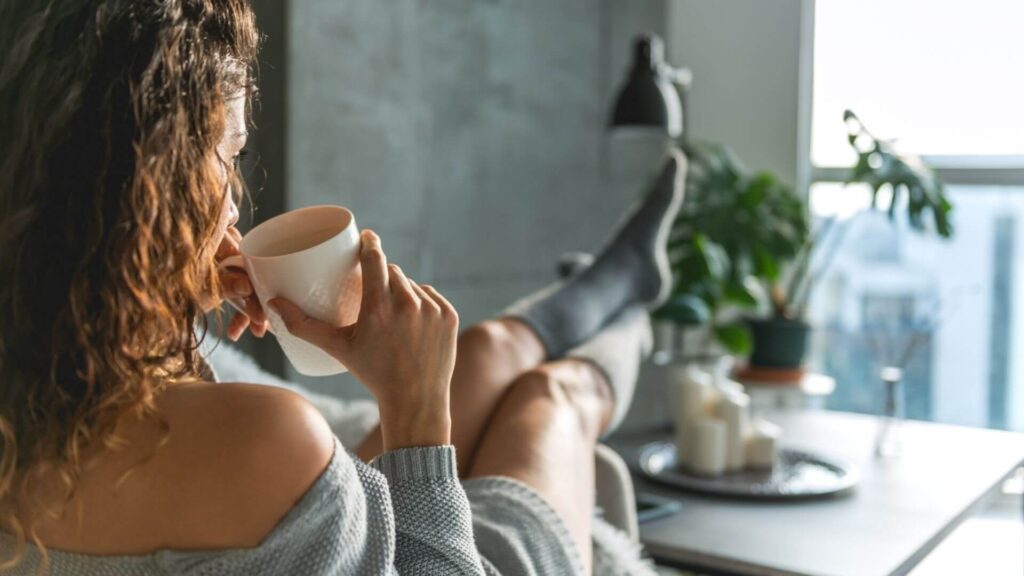
It’s obvious that you can you taste the difference between decaf and regular coffee but decaf can also be healthier than its caffeinated counterpart because of the lack of caffeine content. So what are the facts? Read on to find out more about this intriguing beverage.
1) Taste
Depending on your palate, some people may argue that decaffeinated coffee tastes worse than regular because it has lost its natural flavor. Others believe that their caffeine habit masks other flavors and makes the coffee taste bitter.
Both sides have valid points that fuel the debate about tasting preferences. The truth is that taste is subjective, and what one person likes, another may not.
2) Health Benefits
Caffeine has been linked to an increased risk of certain types of cancer, heart disease, and high blood pressure. According to the Mayo Clinic, overdoing caffeine can cause anxiety, irritability, restlessness, insomnia, elevated blood sugar levels in people with diabetes, and a fast heartbeat.
3) Caffeine Disrupts Sleep
If you’re having trouble sleeping, it might be time to reduce your caffeine intake. Caffeine has a half-life of around six hours, which means that the caffeine from your morning coffee will remain in your system until at least noon.
4) Better Taste
Decaf beans are usually not left out on the shelf for too long so they will have more flavor than ground coffee that has been sitting for several days.
5) Decaf is Green
When an entire batch of coffee beans goes through the decaffeination process, you lose many of the flavor notes that contribute to the taste of the coffee. Once all those different bean types are combined into one, it can give your cup of joe a more generic or muted taste.
6) Decaf Contains Caffeine
Your decaf will still contain some caffeine; it’s just not enough to make you jittery. A typical cup of decaffeinated coffee contains anywhere from 1-4mg of caffeine per cup. By comparison, an average 8 oz cup of regular coffee can range from 125-200 mg with a 12 oz “grande” at Starbucks containing roughly 360mg.
7) Decaf is Smoother
Since decaf coffee beans have been through a process to remove the caffeine, it allows for a smoother cup of coffee since you’re not going to get that jittery feeling from too much caffeine.
8) Better Blends
Certain types of coffee are normally blended with other beans to make them taste better, but since decaf has been stripped of its caffeine it is not blended with any caffeinated beans. An example would be the Swiss water process where the coffee beans are steamed and then rinsed in a bath of near boiling-temperature water to remove caffeine.
9) Roasted for Full Flavor
Some brands of decaf coffee are roasted just as long as regular to ensure that it still tastes the same. The only difference is that it’s harder for some companies to develop flavors with lower caffeine content, so they must compensate by roasting longer.
In you are in hurry, here’s a brief summary
Decaf coffee tastes different than regular coffee but may be healthier due to its lack of caffeine content, which has been linked to certain health risks.
Decaf coffee can still contain some caffeine, but much less than regular coffee so it may be an effective way to reduce caffeine intake for those with sleep issues.
Is Decaffeinated Coffee Bad For You? (Health Benefits of Decaf Coffee Beans)
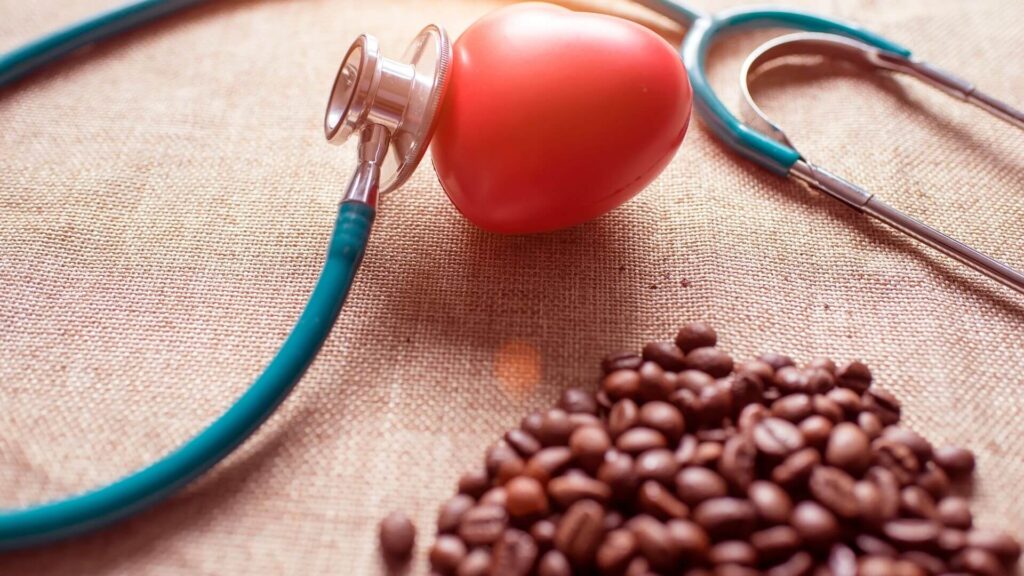
- Reduces the risk of type 2 diabetes
- Helps protect your heart
- Decaffeinated coffee is better for people with insomnia because it promotes an increase in theta (slow-wave) brain activity [source], which is associated with sleep.
- You wake up without a headache or jitters.
- You can stay alert and focused during meetings and conferences.
Decaffeinated coffee can help you from getting diabetes. That is because it causes the sugar in your drink to go slower into your body. The less sugar, the better.
Decaf coffee does help protect the heart
The caffeine in normal coffee has been linked with an increased risk of sudden cardiac death, but decaffeinated versions of those drinks don’t share those same risks. They’re also lower in calories and generally less acidic (which is good for bone health and blood pressure).
Decaf coffee can improve your sleep
Decaf coffee contains significantly lower levels of caffeine compared to regular coffee, making it a better choice for all people who experience sleep disruptions due to caffeine consumption. By switching to decaf coffee, especially in the evening, individuals may find that they can enjoy the taste and comfort of coffee without negatively impacting their sleep quality.
In you are in hurry, here’s a brief summary
Decaf coffee can help reduce the risk of type 2 diabetes by slowing down the sugar intake, protect the heart by not sharing the same risks associated with caffeine in normal coffee, and improve sleep quality by containing lower levels of caffeine compared to regular coffee.
Switching to decaf coffee can also help people stay alert and focused during meetings or conferences without experiencing headaches or jitters.
Does decaf coffee give you more energy than regular coffee?
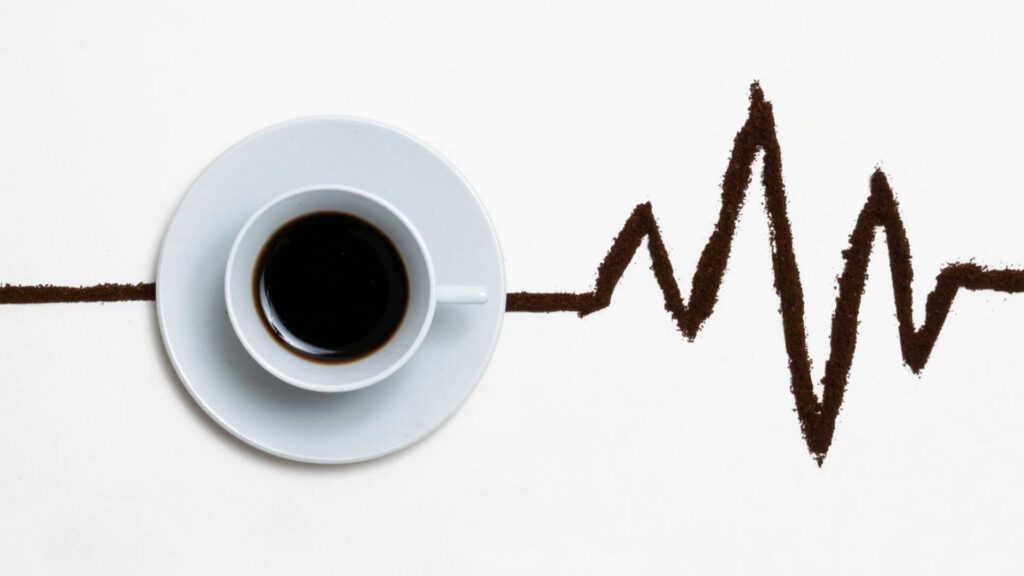
Decaf coffee does contain a small amount of caffeine, enough that some people say it might give you a “slight kick.”
As decaf coffee contains less caffeine than regular coffee but it still contains other stimulants that are found in regular coffee like theobromine (cocoa extract), lactose (milk extract), or sodium.
What is the point of drinking decaffeinated coffee?
According to experts, coffee has many health benefits, including antioxidants and lutein which are related to lower rates of various cancers, including colon cancer.
Decaf is a great option for people who want all these benefits but do not want caffeine. Other popular options include black tea or herbal teas like chamomile, peppermint, ginger, etc. Either way, there’s always an alternative to getting our morning (or any time) pick-me-up that doesn’t involve coffee!
Which Decaf Coffee Should I Try?
If you are after a delicate, low acidic taste with a smooth finish you should go for Don Pablo Coffee. It has citrus, cocoa, and caramel notes that enhance the taste of your coffee.
If you are a fan of stronger, more smoky flavors with a more complex blend then Peet’s Coffee Decaf would be my recommendation.
Some Questions You May Have
Does decaf coffee taste worse?

Studies have shown that caffeine makes coffee taste better, increasing the full range of weighty, bitter notes to a wider extent than decaf.
On the other hand, decaffeinated coffee usually tastes better for those people who are all too sensitive to the effects of caffeine.
Why should you not drink decaf coffee?
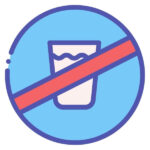
A cup of decaf coffee is not as effective at getting someone fully awake as other types of caffeinated beverages, so it might leave you feeling unmotivated or less energetic than other types of coffee.
Why does decaf coffee taste bitter?

Decaf coffee needs to be processed using special equipment that removes caffeine from the process. It can taste bitter not because it is missing some key flavor, but because it had more caffeine than decaf coffee!
Conclusion on Why Does Decaf Coffee Taste Different
Now you know that decaf coffee taste different than regular coffee. But It doesn’t mean that it tastes bad.
Caffeine-free coffee is an excellent option for those who want to enjoy the taste of coffee without caffeine.
Preparing decaffeinated beans differs from regular, caffeinated beans because it requires more processing due to removing most or all of the caffeine content. It is no longer an energy-giving drink.
No matter whether you pick regular or decaf, remember that too much of anything isn’t good for your health or your taste buds.

